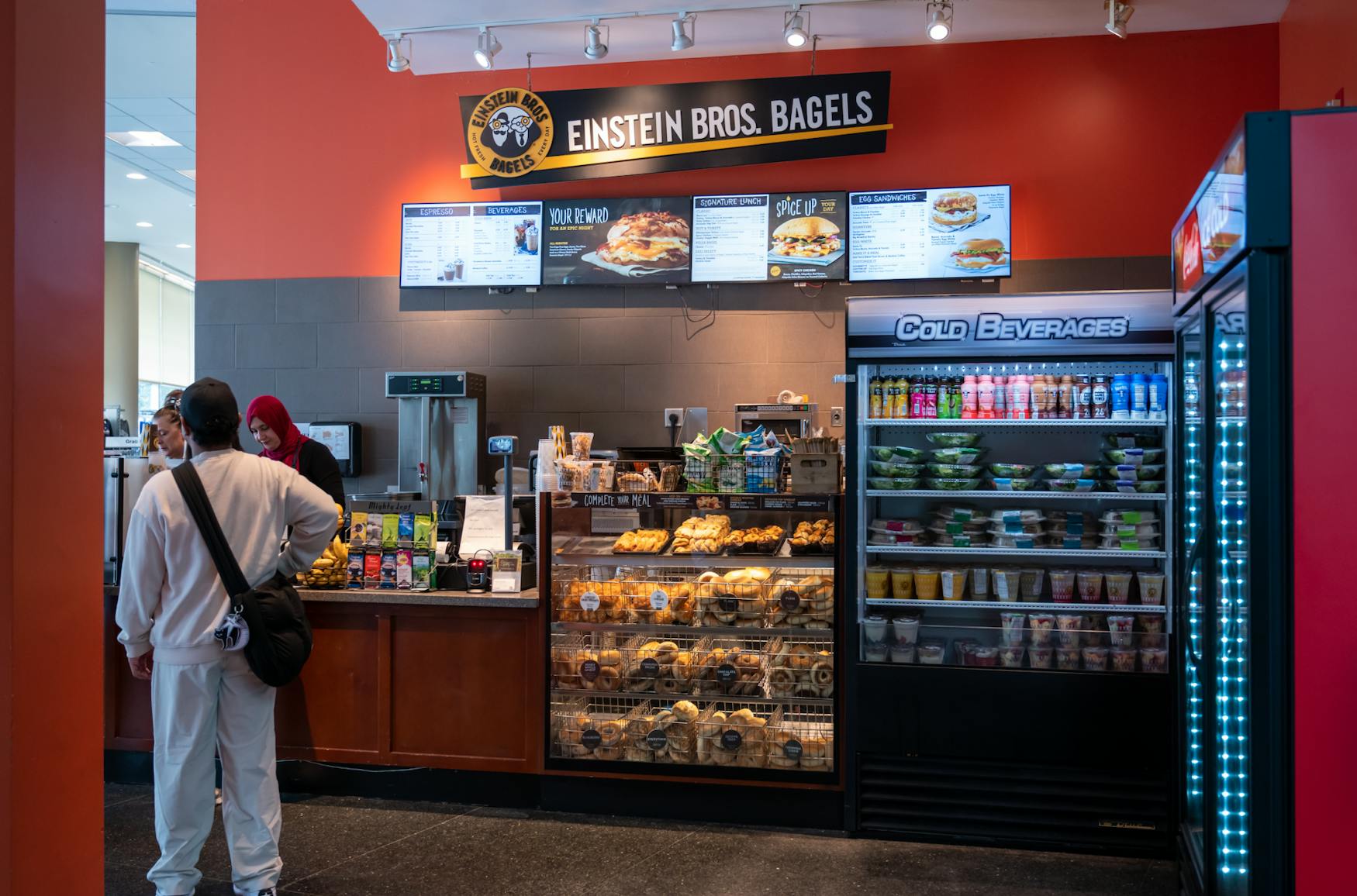Campus dining is undercooked, but on the right track
Dining is an important part of campus life and discourse and has undergone many changes with the start of the year. One of the biggest updates was the switch from Starship to Grubhub as Brandeis’ main food order and delivery app, in addition to the new “All Access” meal plan. As with any new system, there is always room for improvement, and this editorial board would like to provide some suggestions regarding the new dining experiences.
First and foremost, the prices of the meal plans raised substantially this year, something which many students are upset about — and for good reason. For all the higher prices, students now receive fewer points per semester than before. The “All Access” meal plan sounds good in theory, but in execution, students feel like they are paying more for a worse dining experience.
Some students turn to alternatives to the Usdan and Sherman dining halls due to how busy they can get during meal times. This has made online ordering through Grubhub a popular alternative. The ability to order food ahead of time to pick up later, and the option to have your food brought to you with food delivery robots, are both great features of the app.
However, some students have found that the Grubhub app occasionally cancels their delivery orders and inaccurately estimates the wait times for picking up orders. If these few bugs can be resolved, then the online ordering process will go much smoother for students relying on ordering through the app for their meals.
The long-standing failure to fully accommodate students with allergies also continues to persist. For students who need specific alterations to their order, such as holding condiments due to allergies, they no longer have the option on the app to write in their changes for the items they order. Allergen information listed at the dining halls is not accurate or specific enough, and overall options for students with allergies, such as gluten allergies, remain limited.
Additionally, for students who can only eat at AllGood, due to cross-contamination concerns, there are even more constraints on what they can eat. Even students with access to the gluten-free pantry cannot use it for weekend meals, since Usadan’s dining hall closes at 2:30 on Fridays, leaving students to fend for themselves.
Other alternatives to the dining halls also include the meal exchange menus at select places such as Einstein Bros. Bagels and the Hive. The meal exchange menus at these locations allow students to continue using meal swipes outside of the dining hall and save their points. However, options for meal swipes are still limited, and the prices are not proportional to a meal swipe. According to the University Services website, breakfast at the dining halls costs $12.50, lunch costs $17.25, and dinner costs $18.25. A small drink and a bagel at Einstein Bros. Bagels, which can be exchanged for a meal swipe, add up to anywhere between $6-11. At Starbucks, students can get a slice of cake or a different pastry and a tall drink the smallest sive available.
While this board is content with all the locations accepting meal swipes, this board is also aware that many students have expressed the desire for Dunkin and Wild Blue Sushi to be added to the meal exchange program. Students are willing to use their meal swipes at these two locations but are forced to use their points, as they do not have meal exchange menus yet. These proposed additions of Dunkin’ and Wild Blue Sushi to the meal exchange program would not only benefit the student body but also Brandeis Hospitality, as more students would start to order at these locations.
Students’ experiences with the new system have also been inconsistent. For example, some members of this board have been unable to use meal swipes in person and have had to use the app, while for others, the app doesn’t allow them to order meal exchanges. Members of this board also have a lot of questions regarding the new system’s ripple effects on other parts of dining. Lines at the dining halls during peak hours lead out the doors and once bustling options like the Hoot seem relatively empty.
Members of this board have also struggled to receive a clear explanation of how the system works from Brandeis Hospitality. The system has been adequate in some ways, but it is worth revisiting and updating in order to make it more student-friendly. These are simply suggestions to improve the dining experience for students; and this board recognizes that the current meal system is an improvement from previous years. However, we hope these persisting issues will be addressed.




Please note All comments are eligible for publication in The Justice.